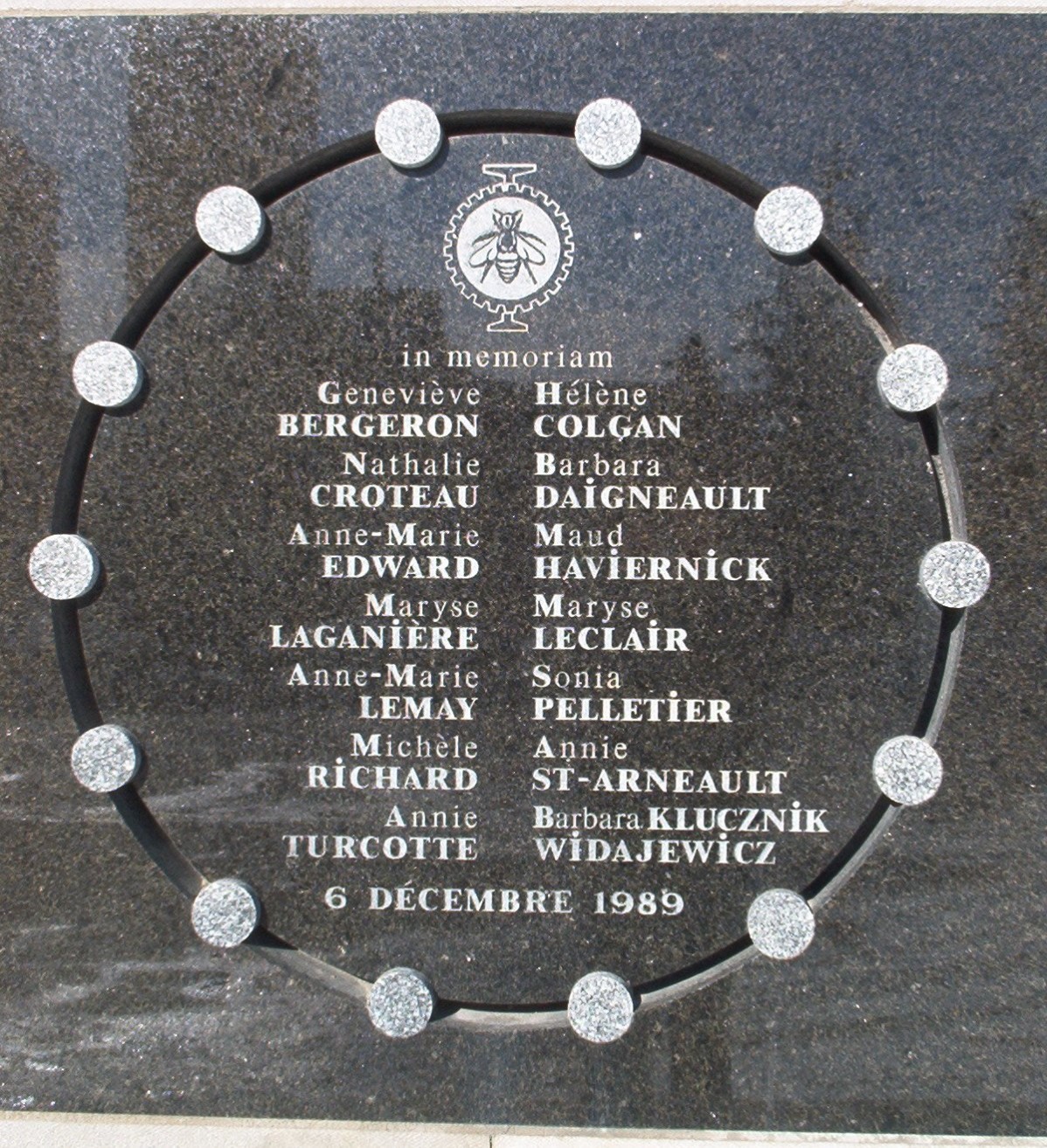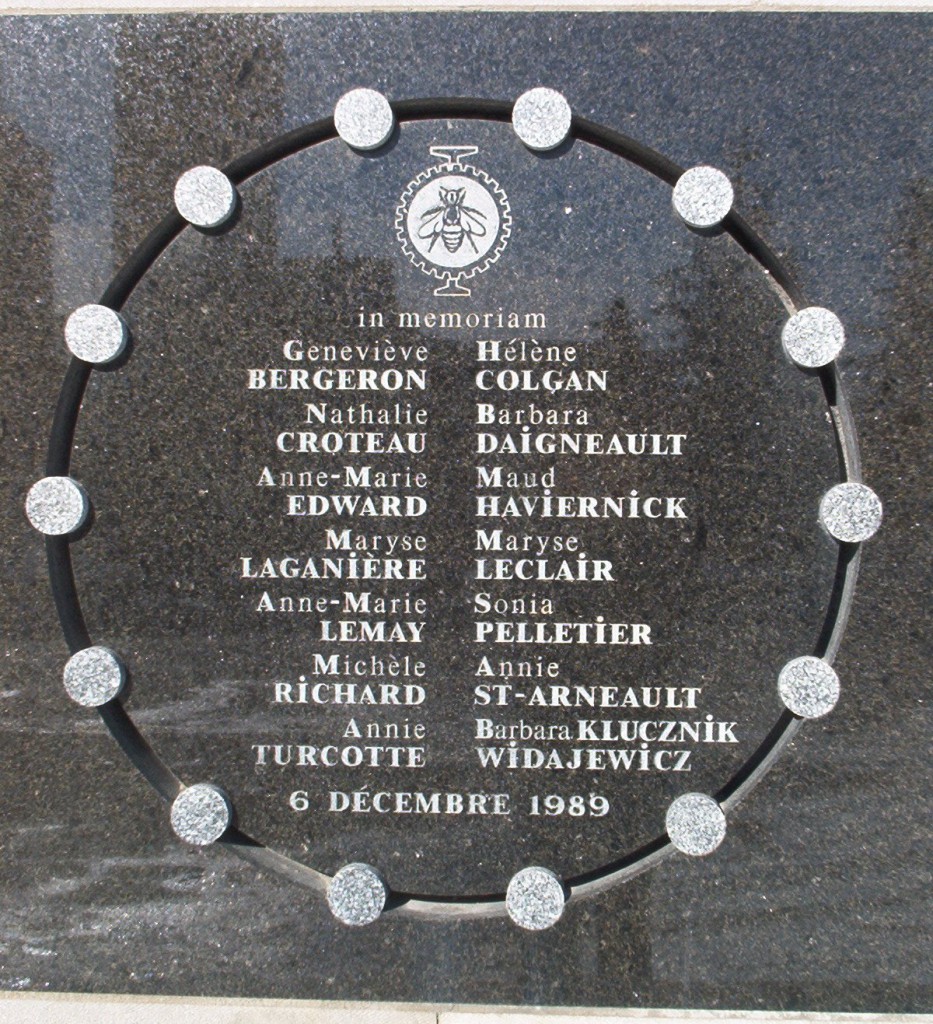On Dec. 6 Canadians unite in solidarity to honour the lives and memory of 14 women murdered at L’Ecole Polytechnique
December 6th Memorial Committee
Special to The Dialog
On Dec. 6 Canadians unite in solidarity to honour the lives and memory of 14 women murdered at L’Ecole Polytechnique.
0n Dec. 6, 1989 an anti-feminist gunman wandered the halls of the school that day, segregating women from their peers, espousing misogynistic beliefs and an explicit hatred of feminists before opening fire and murdering Geneviève Bergeron, Hélène Colgan, Nathalie Croteau, Barbara Daigneault, Anne-Marie Edward, Maud Haviernick, Maryse Laganière, Maryse Leclair, Anne-Marie Lemay, Sonia Pelletier, Michèle Richard, Annie St-Arneault, Annie Turcott and Barbara Klucznik-Widajewicz.
Dec. 6 stands as Canada’s National Day of Remembrance and Action on Violence Against Women to reflect on the tragic events of that day and on the continuing acts of violence regularly perpetrated against all women across Canada in every area of life.
The terrifying events of Dec. 6, 1989 proved to be a galvanizing moment for the feminist movement and acted as a catalyst for change regarding the inequities and suffering each woman experiences.
Judy Rebick, a Toronto feminist activist, broadcaster and journalist wrote in a column on cbc.ca in 2000, “the death of those young women would not be in vain, we promised. We would turn our mourning into we would turn our mourning into organizing to put an end to male violence against women.”
The December 6th Committee led by the assaulted women and children counsellor advocate program at George Brown College has chosen to commemorate the 14 women killed at L’Ecole Polytechnique and other women victims of violence by directing our focus to end institutional violence against women.
We seek to educate ourselves and others concerning the status of women in our nation and the devastating impact of the numerous oppressions we face as individuals and as a group, simply because we identify as women. Our organization is an effort to contribute to the work that still needs to be done.
We must acknowledge as individuals and a nation the destructive impact and fallout that continued oppression, exploitation, sexualisation, and all forms of violence against women has on our cultures, societies, and nation as a whole.
In order to address our current systems it may be wise for each of us to reflect on feminism and the status of women by offering some perspective in this area or as The Times columnist Caitlin Moran suggests “What part of ‘liberation for women’ is not for you?”
Violence against women is everyone’s problem and in working to prevent what is essentially the annihilation of women we must demand change at every level in our culture and society.
“Men are afraid that women will laugh at them. Women are afraid that men will kill them,” wrote Canadian activist and writer Margaret Atwood more than 30 years ago, inspired by conversations she had with groups of men and women at that time.
The statement is shocking as it is based in truth and remains relevant today, reflecting the environment and conditions women are forced to negotiate.
Please join us for a college-wide memorial held on Dec. 10 from 11 a.m. to noon in room 303 at 290 Adelaide followed by a march to highlight our cause and bring attention to the work that needs to be done. We will light candles to honour those women killed on Dec. 6 and all women victims of violence at the hands of men, and have students and speakers come together to connect us with this cause and inspire us to towards demanding positive change.
Each one of us is a survivor and we encourage every person to speak out and interrupt misogyny by sharing our experiences and validating the worth of women everywhere.
Cheris Kramarae wrote in A Feminist Dictionary that feminism was the “radical notion that women are human beings,” – that should no longer be an explicitly feminist demand.



